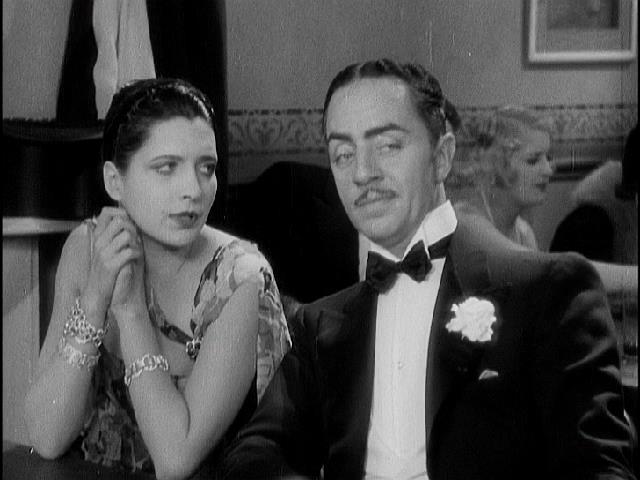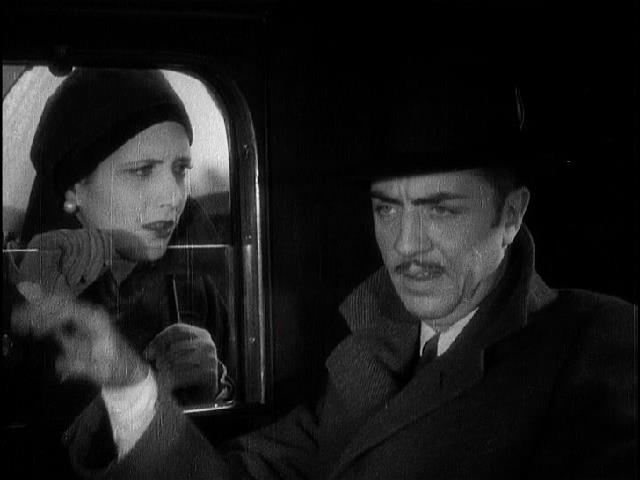Though he’d been in movies for some time, it took the talking picture and that magnificent voice to really make a star out of William Powell. Considering that Paramount cast him as the doomed Philip Voaze in their very first talkie, Interference (1928), it seems that the studio knew the value of that voice and Powell’s distinctive delivery. His early talkies were a mixed bag all the same, though his appearances as S.S. Van Dine’s gentleman detective Philo Vance in The Canary Murder Case (1929) and The Greene Murder Case (1929) that sold the public on him. However, it was the teaming with Kay Francis and director John Cromwell on the excellent Street of Chance (1930) that sealed the deal. It was therefore no great surprise that three would quickly be shunted into another film — the considerably more prosaic, but still very enjoyable For the Defense.
As a story, For the Defense is nothing special, though it certainly informed other films like The Mouthpiece (1932) and State’s Attorney (with Warren William and John Barrymore respectively), as well as Powell’s own Lawyer Man (1932). The sub-genre of the charming rogue lawyer courtroom drama owes much to this one little film. They all tend to focus on a glib-tongued attorney, who specializes in overtly theatrical tricks to get their clients off — and there’s always a reckoning of some sort before the story ends. For the Defense is no better and no worse than the others, but it is — as far as I can tell — the first. Powell and Francis are excellent as the leads — and their characters are surprisingly complex. As a film, however, the most interesting aspect is the startlingly fluid direction of John Cromwell — a filmmaker ripe for further study. Cromwell had proved himself a visual stylist with his third film, The Mighty (1929), and only improved from there. For the Defense was his sixth film and he was in full control of the medium, as is evidenced in the tracking shot from the jail to the courtroom early in the movie. Definitely worthwhile for Powell and Francis fans, but even more interesting as a development in sound film.
The Asheville Film Society will screen For the Defense Tuesday, April 28, at 8 p.m. in Theater Six at The Carolina Asheville and will be hosted by Xpress movie critics Ken Hanke and Justin Souther.






Before you comment
The comments section is here to provide a platform for civil dialogue on the issues we face together as a local community. Xpress is committed to offering this platform for all voices, but when the tone of the discussion gets nasty or strays off topic, we believe many people choose not to participate. Xpress editors are determined to moderate comments to ensure a constructive interchange is maintained. All comments judged not to be in keeping with the spirit of civil discourse will be removed and repeat violators will be banned. See here for our terms of service. Thank you for being part of this effort to promote respectful discussion.